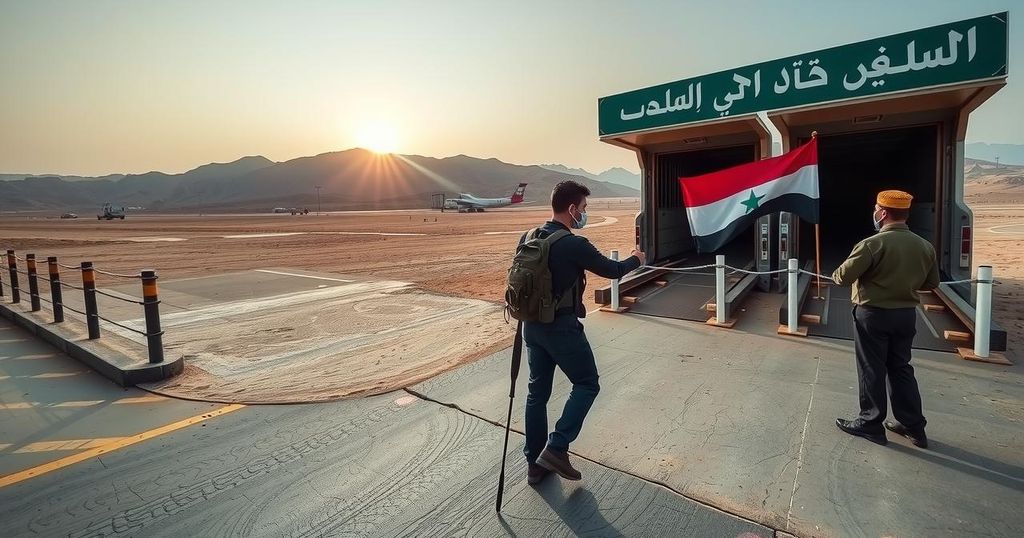HTS Assumes Control Over Critical Border Crossings in Syria

Hayat Tahrir Al Sham (HTS) has taken control of border crossings with Jordan and Lebanon following the downfall of Bashar Al Assad. This shift aims to bolster Syria’s economy and manage border operations. Jordanian authorities are monitoring the situation closely, especially in light of concerns regarding smuggling and terrorism. HTS’s rise as an influential power in Syria signifies a possible shift towards new governance in the war-torn nation.
Following the recent overthrow of Syrian leader Bashar Al Assad, the extremist group Hayat Tahrir Al Sham (HTS) has gained military control over crucial border crossings into Jordan and Lebanon. This control is expected to enhance the Syrian economy by facilitating trade and providing necessary finances for any upcoming government. At the Nasib border crossing into Jordan, HTS has deployed troops and equipment while striving to streamline operations, potentially allowing for increased trade traffic. Reports indicate that Jordan currently permits limited Syrian passage and plans to tighten border controls to prevent smuggling activities, particularly concerning the trafficking of Captagon, an illicit drug previously facilitated under Assad’s regime.
HTS’ emergence as Syria’s de facto rulers has raised concerns among neighboring states regarding regional security. The group’s leadership, under Ahmad Al Shara, aims to deter the influx of extremist ideologies while focusing on state-building efforts. In response to HTS’s movements, Jordan’s military has heightened surveillance in the vicinity to monitor developments. Despite HTS’s consolidation of border control, regions controlled by Kurdish forces and ISIS remnants remain unaffected by the group’s authority.
The rise of Hayat Tahrir Al Sham (HTS) follows years of turmoil in Syria, where the ongoing civil conflict has prompted shifts in power and territorial control among various factions. HTS, which evolved from an Al Qaeda affiliation, has positioned itself strategically, particularly along Syria’s borders with Jordan and Lebanon. Historically, these border areas have been significant conduits for trade and illicit trafficking, which has drawn the attention of neighboring governments focused on maintaining regional stability. The control over these crossings is viewed as a pivotal step in HTS’s broader attempts to consolidate power and create a semblance of governance in the chaos that has engulfed Syria since 2011.
HTS’s acquisition of control over key border crossings marks a significant transition in Syria’s ongoing conflict and raises various geopolitical implications. As the group works to establish new governance structures, neighboring nations, particularly Jordan, remain vigilant regarding potential security threats. The ability of HTS to influence trade dynamics could also have substantial effects on the broader economic landscape of post-conflict Syria.
Original Source: www.thenationalnews.com








